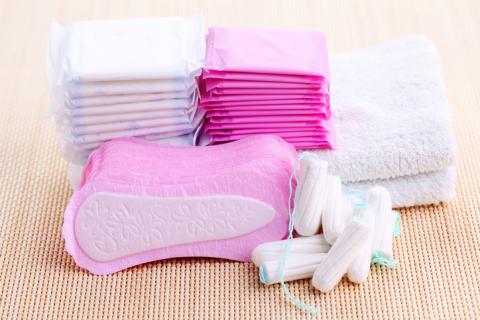Having spent four years volunteering at a food bank in my home town of Birmingham, I was alarmed at the rapidly growing need for them.
What was once a small team, with a few shelves of baked beans and long-life milk, became a team of 20 to 30 volunteers hardly able to accommodate the increasing numbers of those in need.
Throughout my time working there I noticed a striking deficit in female sanitary products. There was only ever a tiny shelf or two devoted to them. In fact, I don’t think I ever packed any sanitary products; of course, everyone received a toilet roll, but towels and tampons were only available upon request.
Yet statistically, we know that women access food banks more than men do and this is often on behalf of families. A mother who is unable to feed her children, and feels desperate enough to access a food bank is not going to prioritise her sanitary products over food for her children.
For all of those people who are unable to access sanitary products, having to use rolled-up socks or scrunched-up tissue is dehumanising and rudimentary, particularly in a developed country such as the UK.
The crucial role universities can play in integrating refugees
Upon beginning my degree at the University of York I wanted to channel my efforts and resources into addressing this problem.
Free the Flow York was born out of this desire. This small yet mighty organisation started as a relatively basic project for the occasional collection of donations, and perhaps an event or two, but nothing more. However, after further researching the problem, I realised that the issues were more multifaceted and profound than I initially thought. I knew more had to be done.
I enlisted my close friends to help set up social media pages (@FreeTheFlowYor1 [Twitter], FreeTheFlowYork [Instagram and Facebook]), and to put the brand together with bespoke artwork from @shesonlysighing on Instagram. I purchased some donation boxes, and after meetings with staff at the university, I was allowed to place them in buildings on campus.
This has led to a steady flow of donations for the project, but I want it to grow further and faster. The plan has always been to make this organisation the template for other universities to follow. It would be amazing to think that universities across the country could have their own Free the Flow charity set up in place over time; Free the Flow Bristol, Exeter and Cardiff, for example. All that is required are some willing students and staff to make small donations and raise awareness of the cause. It is a simple premise that could make a huge difference.
Starting up a project such as this seems simple. However, taking things to the next level is far more complex. I am currently trying to secure funding for a small event in York that will launch the organisation and celebrate Menstrual Hygiene Day on 28 May.
Organising a large-scale event with close to no practical experience in events management, and no money, in a matter of weeks is much harder than the naive Holly of four or five months ago had anticipated. However, I am determined to make it a reality, so that discussions around menstruation issues start to take place among students.
Juggling a start-up charity with the pressures and expectations of university is not easy – I would be lying if I said otherwise. Obviously I have deadlines to meet and my own studies to focus on, and in order to take this project onto the next level I will certainly need to recruit more help; mostly to have a wise voice reining in my somewhat overly ambitious ideas. But the project has so much potential to make a difference to the lives of menstruators of all walks of life.
For me, it is enough motivation to think back to the dusty shelf of period products at my local food bank to make this campaign as successful as possible. Access to sanitary products is a fundamental right, yet is deemed a superfluous item in today’s society. Discussions need to be had and change needs to happen, and with a workforce of young, passionate students across the country, there is nothing that we cannot achieve.
Read more: Student volunteering: working with a major charity

Comments